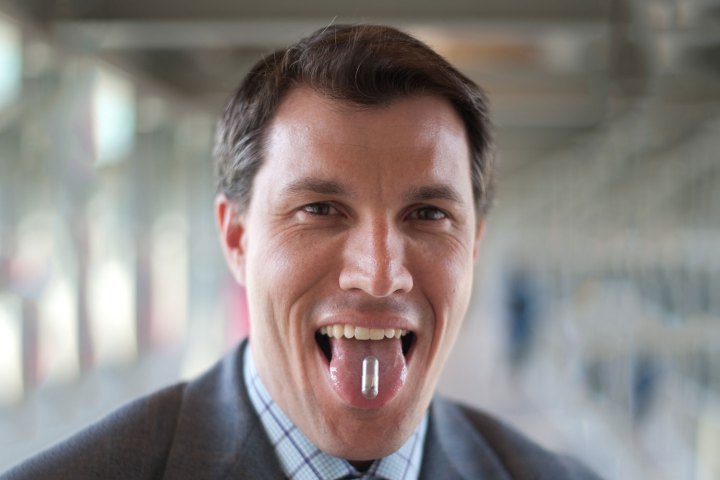
Battery-operated medical devices have been around for decades and, though many components of the devices are biodegradable, the batteries they carry are not. To that end, CMU and researchers from Bettinger Research Group developed biologically-derived materials for use in edible electronics.
Bettinger and his team had to create an edible battery that could supply the necessary power for the ingestible device’s trip down the gastrointestinal tract.
So, in the researchers’ recent work, they designed and fabricated a battery made from materials found in everyday diets. They turned to melanin, a pigment used in our bodies to absorb ultraviolet light, binding and unbinding metallic ions, which the researchers recognized as a basic function of batteries.
The first hurdle was “understanding the right combination of electrode configuration and complementary cation pairs,” Bettinger told Digital Trends. “If you use melanin the wrong way or use the wrong type of cation, you get a very different — often worse — level of performance in terms of both capacity and voltage. Only after understanding something about the fundamental function of melanin in the body and leveraging that knowledge appropriately could we design a battery that would work properly.”
The energy provided by such a battery is enough to power the device through its entire transit, according to Bettinger.
Although it might seem counter-intuitive, there are benefits to building these batteries for one-time usage, Bettinger says. Traditional, rechargeable batteries may be used multiple times, but their chemistries are toxic. The melanin alternative developed by Bettinger and his team can be used effectively once before safely biodegrading.
There’s still work ahead before the batteries find their way down your esophagus, though. But Bettinger thinks their recent advances are promising enough.
“We can always increase the capacity, but we feel that we are at a stage where we can supply sufficient power at energy densities that are sufficient for the envisioned applications,” he says. Past that point, the researchers are looking to test the device in medical applications to ensure its non-toxicity and design the power source to fit the size and capacity needed to power particular ingestible devices.



